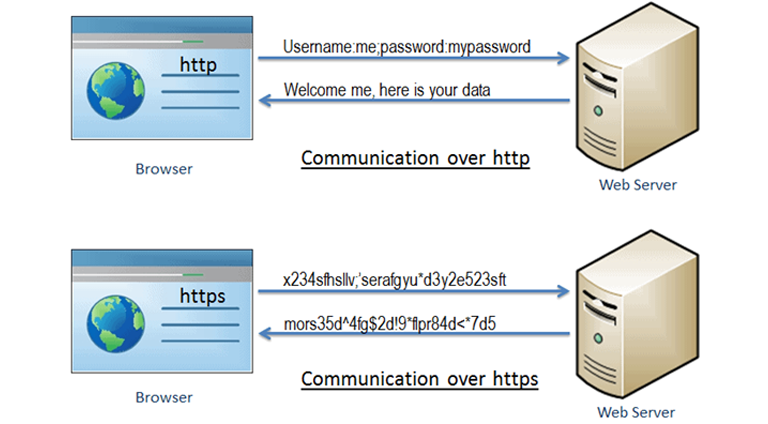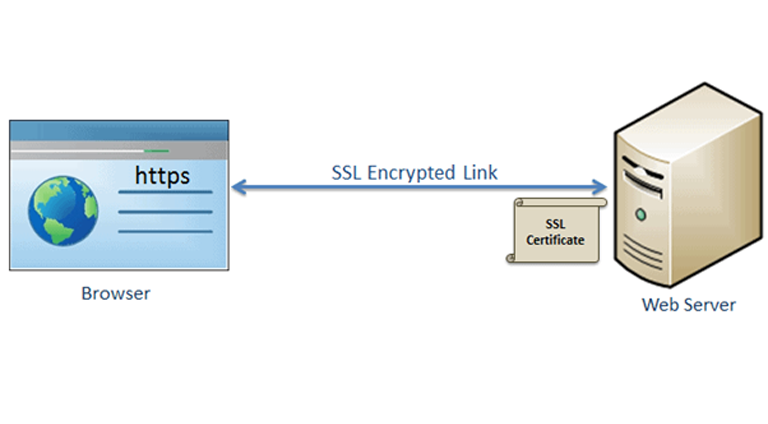Want to Secure Your Website? Here’s How HTTPS Can Help

Security has always been a concerning issue, whether it is your home or data transfer between a user’s web browser and a web server. Of course, you can hire a security agency for your home, but what about the security of your website? As hackers are getting smarterwith new technologies, the need to protect your digital assets is even more important. So, what could be the solution for eavesdroppers and man-in-the-middle (MitM) attacks on your website? Hypertext Transfer Protocol Secure (HTTPS) and Secure Socket Layer (SSL) are the saviours here. So, if you are looking to secure your website, you must know about HTTPS. Read on!
Key Takeaways
- What is HTTPS? HTTPS is a crucial feature of a website that initiates encryption and builds secure connections between the browser and the server.
- SSL certificate is a digital certificate containing small data files that protect the transfer of sensitive data.
- This gold standard protocol is now essential for websites as Google Chrome and Mozilla Firefox only flag HTTPS websites.
What Is HTTPS: All the Facts You Need
What is HTTPS? Or what is HTTPS protocol? How is it relevant for you? Let’s get started
HTTP is a primary protocol to transfer data between a web browser and a website. HTTPS is a secure version of HTTP that increases data transfer security. If the user on the website is sending sensitive data like bank details, other crucial account numbers & passwords, then a secure version of HTTP is necessary for the website. It secures your website and builds trust with the users.
The basic mechanism of HTTPS is to encrypt all mobile data with an encryption protocol called Transport Layer Security (TLS), preceded by Secure Sockets Layer (SSL). As the data in HTTPS is encrypted bi-directionally, it immunes the website and information from forging and tempering at the client and the server end. Most importantly, the authority to decipher the data is only in the hands of site owners.
Let’s understand the difference between HTTP and HTTPS.
| HTTP | HTTPS |
| It stands for Hyper Text Transfer Protocol. | It stands for Hyper Text Transfer Protocol Secure |
| Out of the seven layers of protocol, HTTP works on the Application layer | It works on the Transport layer |
| As the Encryption technique is not present, it transfers plain text without any security | In HTTPS Encryption technique is present, so the data is transferred in ciphertext |
| This protocol operates on port number 80 | This protocol operates on port number 443 |
| This protocol doesn’t need any certification | This protocol requires a Secure Socket Layer (SSL) certificate |
| Examples of HTTP – Educational sites, Gaming sites and more | Examples of HTTPS – Banking websites and other transactional websites |
Most websites now use HTTPS connections, so it has become easier for you to distinguish between secured and unsecured websites. However, you might be wondering – How to check whether the website is HTTPS enabled or not?
-
- Open any website dealing with monetary transactions or transferring users’ personal data.
- After that, check the address bar. If the address contains a padlock icon at the left corner, it is a secured website.
- You can also notice HTTPS written in the URL of the website. For example, HTTP sites use HTTP:// while HTTPS sites use HTTPS://
Why You Should Use HTTPS and SSL to Secure Your Website
Until digitalization, we were not required to take extra measures to secure websites, but things are changing now. So, E-commerce transactions or sharing sensitive information over the web must be secured using HTTPS. Should you use HTTPS and SLL to secure your website? Let’s find out.
When the website is made over a public network, i.e., Wi-Fi, anyone can easily tamper or intercept using any software. So, to keep the website secure from any attack, we should connect the web browser and server through HTTPS, and the communication occurs through SSL/TLS authentication. We should use HTTPS and SSL to Secure Your Website because:
Image Source: Tutorials Teacher
- Nowadays, HTTPS is preferred for all data transfer activity on the website. It is the safest way to protect users’ sensitive data.
- HTTPS also benefits the site owners by improving the web functionality and customer experiences.
- With the advancement of technology, hackers can steal or track the behavioural & identification data of a non-HTTPS website. That’s why it is important to get a secure connection.
- HTTPS also allows users to check the domain name against the SLL certificate. Furthermore, it protects sensitive data by encrypting client-server communication with SLL/TLS authentication.
- Customer assurance and trust are crucial when starting a business where monetary transactions are required. HTTPS can safeguard the essential information of customers like bank details, account info and more. In addition, it will boost users’ confidence in your service.
How to Check if HTTPS Protocol Is Working?
There are billions of internet users right now, and the number is still increasing with advancing technology like 5G, internet engagement, and more. In addition, businesses of nearly all sectors are going through digital transformations, and everything is now accessible over the internet. Logically strong security safeguarding the financial or other crucial information stored over the internet is the need of the hour. Right? That is where SSL and HTTPS come in.
If you are using Google Chrome, then it is easy for you to view and check the validation of HTTPS protocol:
- Look for the padlock icon in the address bar and click on it
- Click on the Connection is secure in the pop-up
- At last, click on the “Certificate is valid” pop-up and check the certificate’s validity period.
You can also view the installed certificates through the Certificate Manager Tool. First, you must type certlm.msc on the command console, then look for the certificates tab.
Here’s How You Can Get HTTPS
You are done with the website design and testing to launch your website;there is one last crucial step that you might need. Adding an SSL to your website. What is SSL used for? SSL is the Secure Sockets layer that protects the website from getting attacked by hackers during data transfer. Moreover, SSLs have become one of the critical features of a website for all website owners to gain users’ trust. You can get HTTPS for the website by:
- Get the SSL certificate; for that, you must create a CSR (certificate signing request) from your server where the application is Hosted.
- Once you get the bundle containing the certificate and chain file, copy it to the server and save it.
- After that, the host will do a permanent redirect (301) from port 80 (HTTP) to (HTTPS).
- In the SSL configuration, you must switch the SSL engine on and then refer to the chain file, certificate file and key.
Lastly, restart your server. Voila! Now you can proceed with the website.
Conclusion
The release of HTTP/2 further prioritizes HTTPS over HTTP. Through several new capabilities, HTTP/2 enables faster web browsing and an improved customer experience to a very large extent. However, most browsers today only support HTTP/2 on HTTPS-enabled web pages. If they want to use these capabilities, HTTP site owners must switch to HTTP/2. We hope this article gave you ample information. If you want to know about crucial insights into the internet and website, contact AdLift today!





